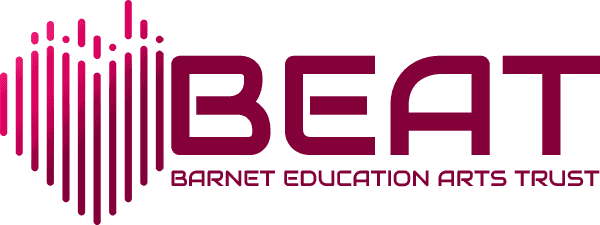What are music exams?
Music exams can be a great way to measure your child’s progress on their instrument. Some children find it really helps them to have a goal to work towards.
Music exams assess a child’s performing ability, technical work, and aural skills.
Exams are not compulsory. You can learn an instrument to a high standard without ever taking an exam, and your child doesn’t have to take all the grades.
It’s important to remember that children take music exams at different times, often depending on how much they practise!
Exam Boards
These exam boards are commonly used by BEAT teachers. Your child’s teacher will let you know which exam board they are using.
- ABRSM: https://www.abrsm.org/
- Trinity: https://www.trinitycollege.com/qualifications/music/grade-exams
- MTB: https://www.mtbexams.com/
Types of exam
Digital exams: For digital exams (sometimes called Performance Exams), a recording of the child playing their exam pieces is submitted to the exam board. Your child’s teacher may be able to film this during your child’s lesson if they are able to use a school or music academy device. It’s quite likely that you will need to make the recording yourself. Guidance for this can be found on the exam board’s website.
Face-to-face exams: These exams take place at an exam centre. You will be responsible for taking your child to the exam, where they will perform in front of an examiner.
Requirements
You may need to buy specific music for your child for their exam. Their teacher should let you know which books to buy.
Depending on the exam board, your child will need to learn and perform some of the following: three or four pieces, scales or technical study, aural (listening) tests, sight reading.
If your child plays an orchestral instrument, they may need a pianist to accompany them in a face-to-face exam. Your child’s teacher or BEAT can help you find someone for this, but you will have to book and pay for the pianist yourself privately.
Cost and booking
Exam fees can be found on the exam board’s website, and the teacher should make the fees clear to you before you decide to go ahead with the exam.
If your child needs a pianist, there will be a further cost for this, both for the exam itself and for a rehearsal beforehand.
If the teacher has asked you to make the booking yourself, you might need to register with the exam board before you can make an entry. You can check this on the exam board’s website.
Face-to-face exams usually take place during the school day. Remember to let your child’s school know about the exam in advance.
How to help and support your child
You don’t need to play an instrument yourself to be able to help your child with their exam work. Encourage regular practice, and give positive feedback.
Often children will avoid practising the things they don’t like, or find difficult. Try to make sure they regularly practise all the elements of their exam. Your child should have a BEAT practise book where the teacher will write down what needs to be done. Some teachers will add this information to Eepos.
Some exam boards have apps which will help with practice, ask your child’s teacher what help is available.
On the day
If your child is taking a face-to-face exam, make sure you arrive at the exam venue 15 minutes before your appointment.
Your child will need to put their instrument together, and warm up. There should be space for them to do this. If your child plays the piano, there should be a piano for them to warm up with.
Your child will be taken to the exam room. If they have an accompanist, they will go too. Parents are not allowed in the exam room.
Once the exam is over, you can leave. The results will be sent to the person who made the exam entry – either you or your child’s teacher.
Remember – the exam should be a positive experience.
Results
Exam results usually take about two weeks. Exams are graded as below pass, pass, merit and distinction.
UCAS points are also awarded for grades 6, 7, and 8.
Results come with a mark sheet which gives some feedback on the performance. Often this will include areas for improvement, so your child knows what they should work on.
Certificates can be downloaded with the mark sheet.
